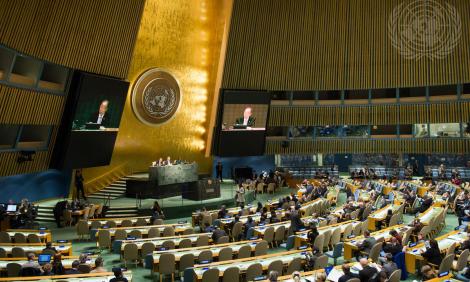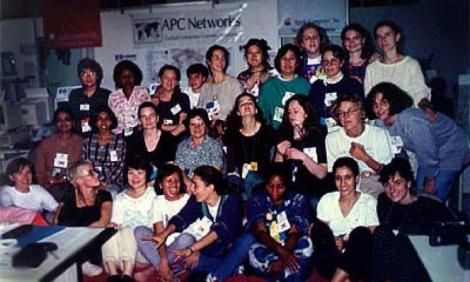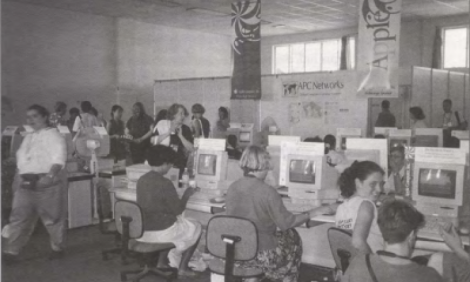
Looking forward: Feminist Futures Beyond Beijing+30
This GenderIT edition envisions feminist futures that honour past struggles while confronting current urgent realities.

In depth
Updated Realities on Gender Justice and Digital Justice: Why International Multilateral Processes and Spaces Must Align
As Beijing+30, WSIS+20, and the Pact for the Future converge, this article reflects on three decades of feminist engagement at the intersection of gender and digital rights. While recognition of issues like technology-facilitated gender-based violence and AI harms marks progress, multilateral processes remain fragmented, Western-centric, and weak on accountability. This article argues for…

Feminist talk
Looking at Beijing+30: Adapting our approach to gender equality for today's technological landscape
This article reflects on how technological change has reshaped the landscape of gender equality. By referencing Hija Kamran's expert paper, it situates APC’s contributions, noting both the progress made and persistent gaps. The article outlines how issues such as digital gender divides, technology-facilitated violence, AI misuse, and surveillance now demand urgent attention. It stresses the…

Feminist talk
TIMELINE: APC since Beijing 1995: Shaping a feminist internet
We are pleased to present our timeline, APC since Beijing 1995: Shaping a feminist internet, showcasing the APC community’s pioneering journey at the intersection of gender rights and digital rights. This timeline honours our shared legacy built by many hands to create resources, build capacity and share voices across the global South.

Feminist talk
APC since Beijing 1995: Shaping a feminist internet
As Beijing+30 prompts reflection on progress toward gender equality, APC marks 30 years of shaping a feminist internet. Since its founding in 1990 and pivotal role in drafting Section J of the Beijing Platform for Action, APC has worked to ensure women and gender-diverse people can co-create digital technologies that reflect their realities. Through advocacy, movement building, and inclusion…

Feminist talk
30 YEARS AFTER THE BEIJING DECLARATION: DEFENDING THE ONLINE BODIES AND LANDS OF MESOAMERICAN WHRDs IS AN URGENT NEED
Thirty years after the Beijing Declaration, women human rights defenders in Mesoamerica face escalating digital violence that mirrors and amplifies offline repression. Research by IM-Defensoras reveals thousands of online attacks led by states, corporations, and fundamentalist groups. These digital assaults are not incidental but structural tools of silencing and control that highlight the…

Feminist talk
REFLECTION ON BEIJING+30: ADDRESSING GAPS FOR LGBTQIA+ AND MARGINALISED COMMUNITIES IN EAST AFRICA
As Beijing+30 approaches, LGBTQIA+ and marginalised women in East Africa remain excluded from the agenda’s promise of equality. Punitive laws, stigma, and violence deepen invisibility, while limited digital access compounds isolation. This article reflects on persistent gaps in the Beijing Platform for Action, exposing its cis-heteronormative blind spots and failure to address tech-facilitated…
Publication
CEDAW: APC's Submission to the Committee on the General recommendation on girls’/women’s right to education






